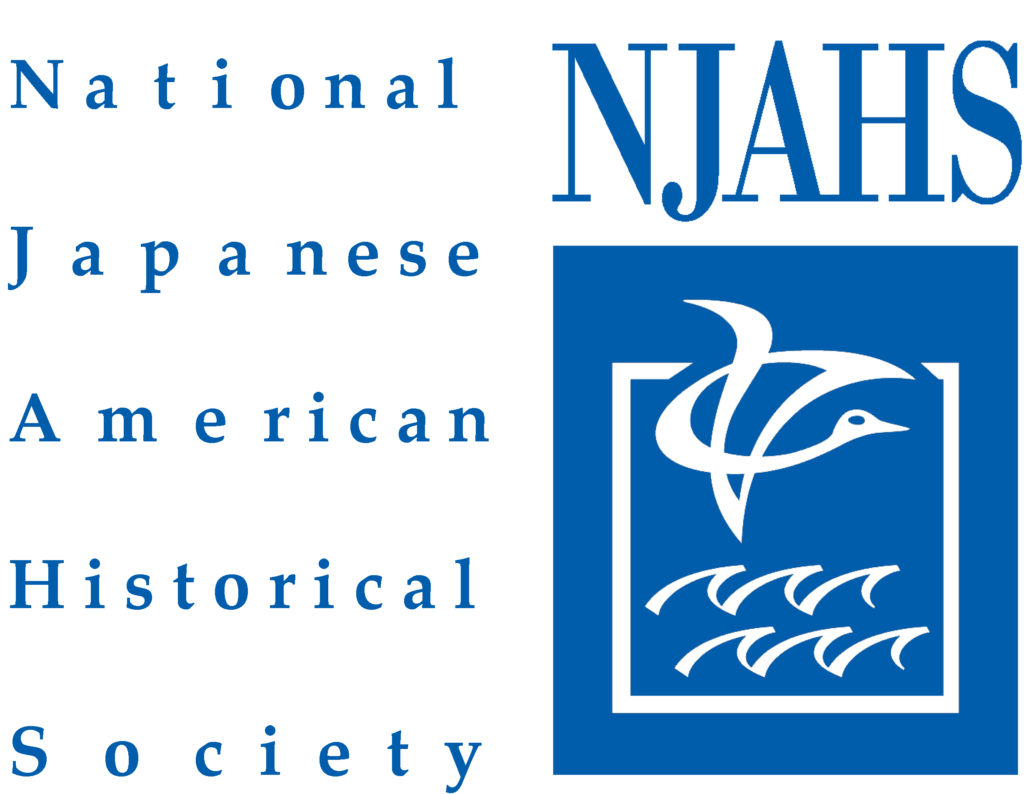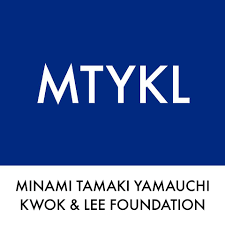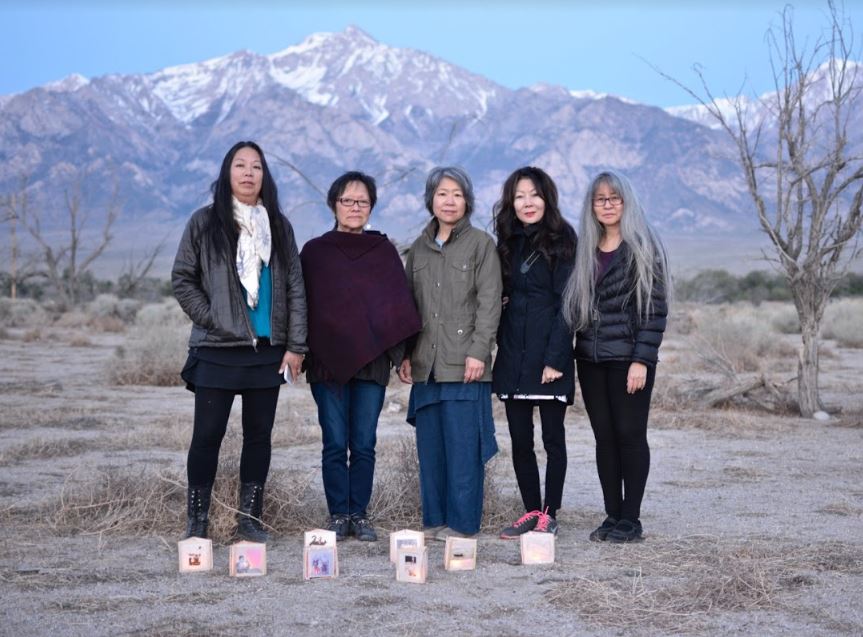 Sansei Granddaughters’ Footsteps is a contemporary arts installation within Then They Came For Me: Incarceration of Japanese Americans during WWII and the Demise of Civil Liberties. The word “sansei” means third-generation. Each artist is a third generation Japanese American reflecting and responding to her family’s incarceration during WWII. Participating artists include Ellen Bepp, Shari Arai DeBoer, Reiko Fujii and Judy Shintani.
Sansei Granddaughters’ Footsteps is a contemporary arts installation within Then They Came For Me: Incarceration of Japanese Americans during WWII and the Demise of Civil Liberties. The word “sansei” means third-generation. Each artist is a third generation Japanese American reflecting and responding to her family’s incarceration during WWII. Participating artists include Ellen Bepp, Shari Arai DeBoer, Reiko Fujii and Judy Shintani.
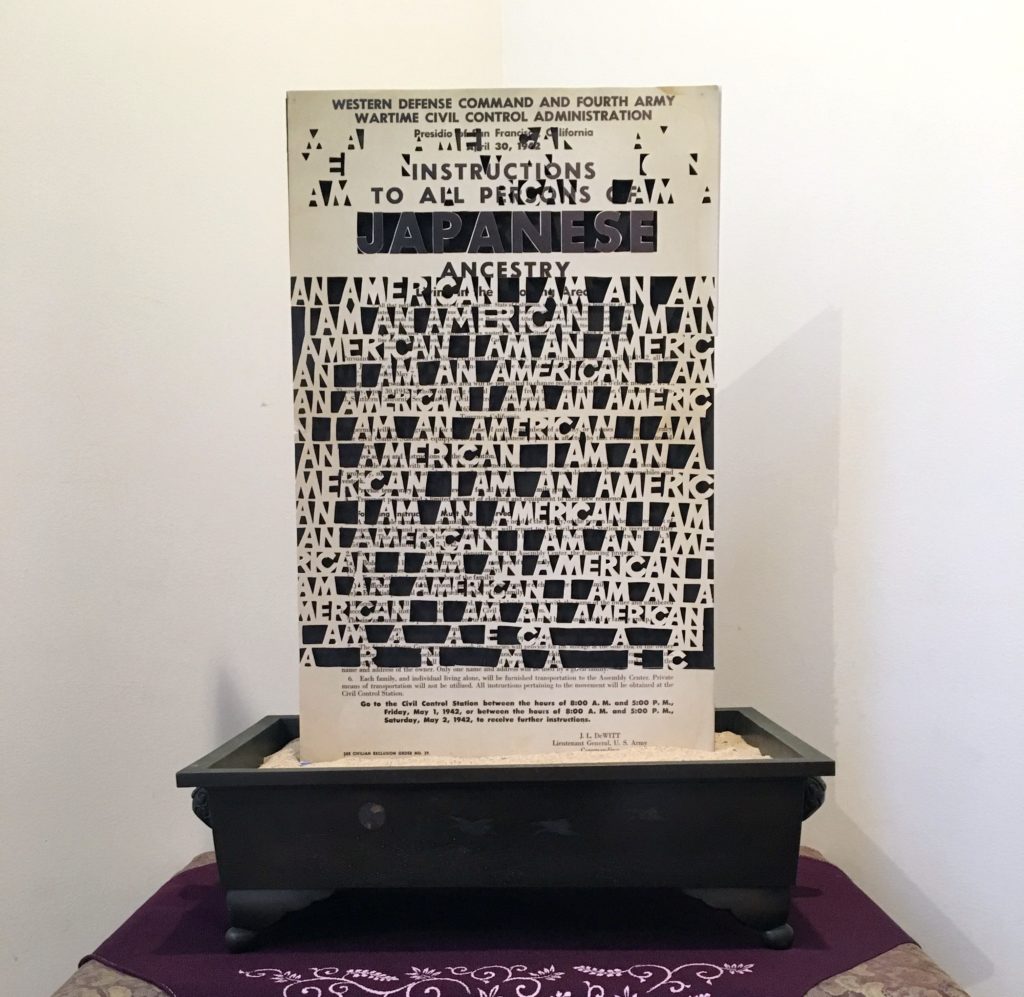 Ellen Bepp
Ellen Bepp
Scarred , 2019
Mixed media assemblage: handout paper poster, vase and sand
47” x 24” x 16”
Scarred is an altered civilian exclusion poster historically used in 1942 to order the removal of Japanese Americans during WWII. The words “I Am An American” are hand cut into the poster which emerges from the artist’s grandmother’s vase that she used for creating her traditional Japanese flower arrangements. The pleading image of cut out text is viscerally disturbing in contrast to the vase which is symbolic of harmony and grace in the art of flower arranging. The poster rises from a mound of sand conjuring images of the barren desert wastelands of the WWII camps.
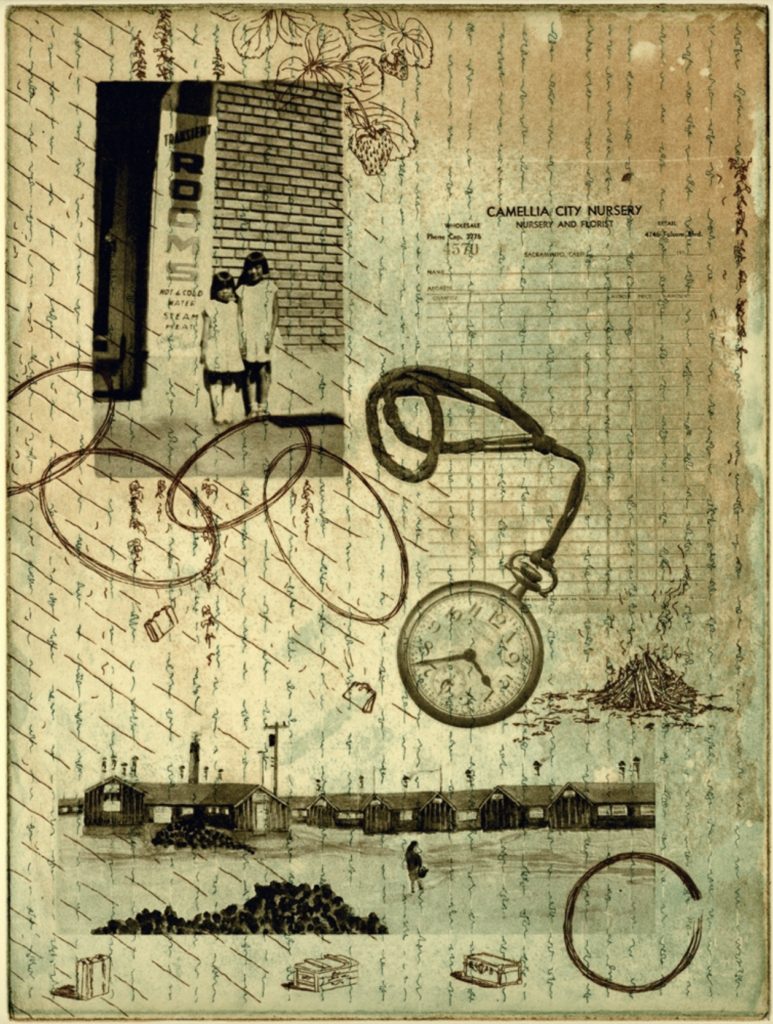 Shari Arai DeBoer
Shari Arai DeBoer
Transient Rooms, 2005
Etching
20” x 16” (Framed)
The etching Transient Rooms started with a photo of DeBoer’s mother and aunt as young girls in front of the family’s Sacramento boarding house in the late 1920s. As imagery of family mementos and experiences were added, the etching came to tell the story of her family’s continuing adaptation from farming, to the nursery business, to incarceration and starting over again.
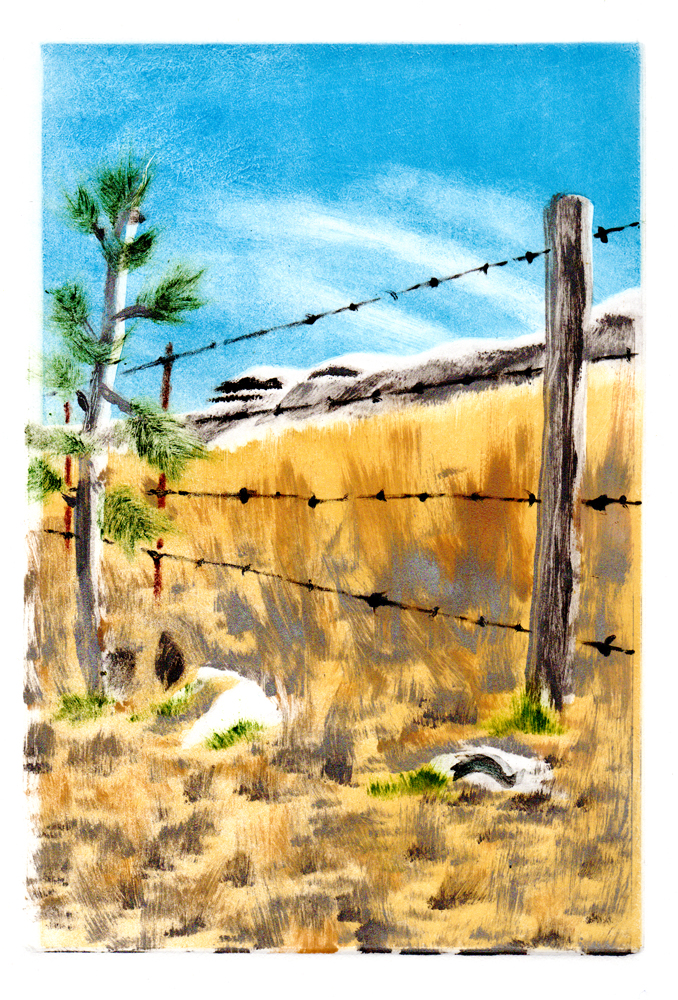 Shari Arai DeBoer
Shari Arai DeBoer
Barbed Wire Reflection, 2018
Monotype
18” x 12” (Framed)
While in southern Oregon near Tule Lake last winter, the harsh weather and landscape moved DeBoer to create Barbed Wire Reflection in appreciation of the hardships her family experienced by being incarcerated at Tule Lake.
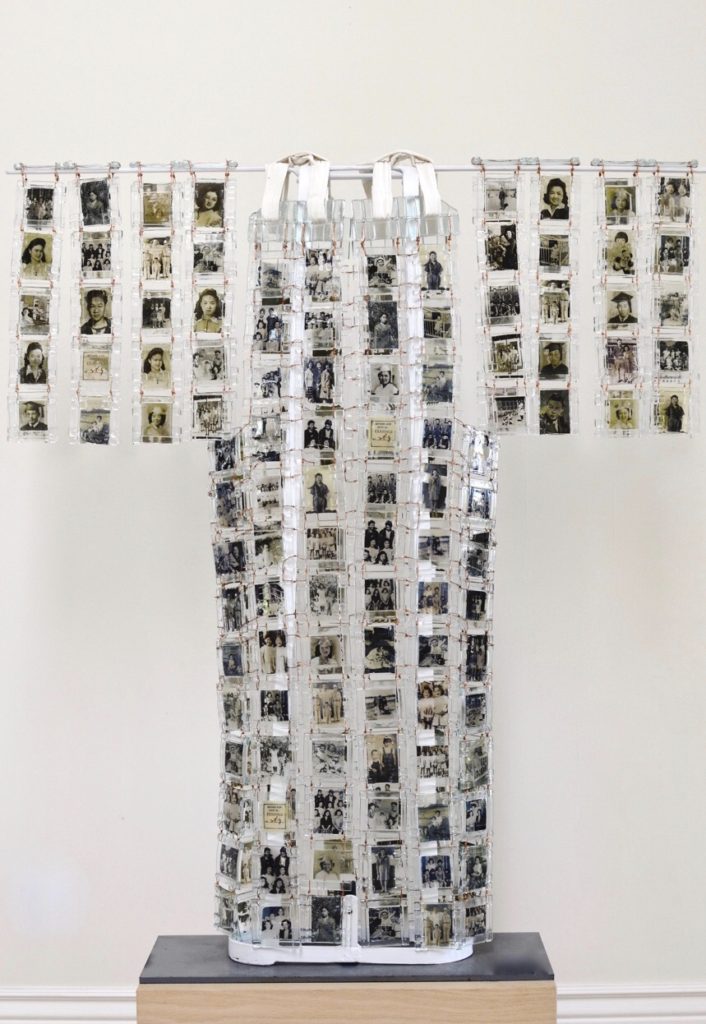 Reiko Fujii
Reiko Fujii
Detained Alien Enemy Glass Kimono, 2017
Images fused onto glass, copper wire
48” x 42” x 6”
Reiko Fujii designed Detained Alien Enemy Glass Kimono as a wearable kimono, made up of over 2,000 pieces of individually hand-cut glass. The 224 fused frames each contain an image of her family, friends or acquaintances while they were unjustly incarcerated during WWII in American concentration camps. The frames are tied to one another with copper wire. The kimono comes alive when worn, as the glass strikes together, creating the tinkling sound of wind chimes.
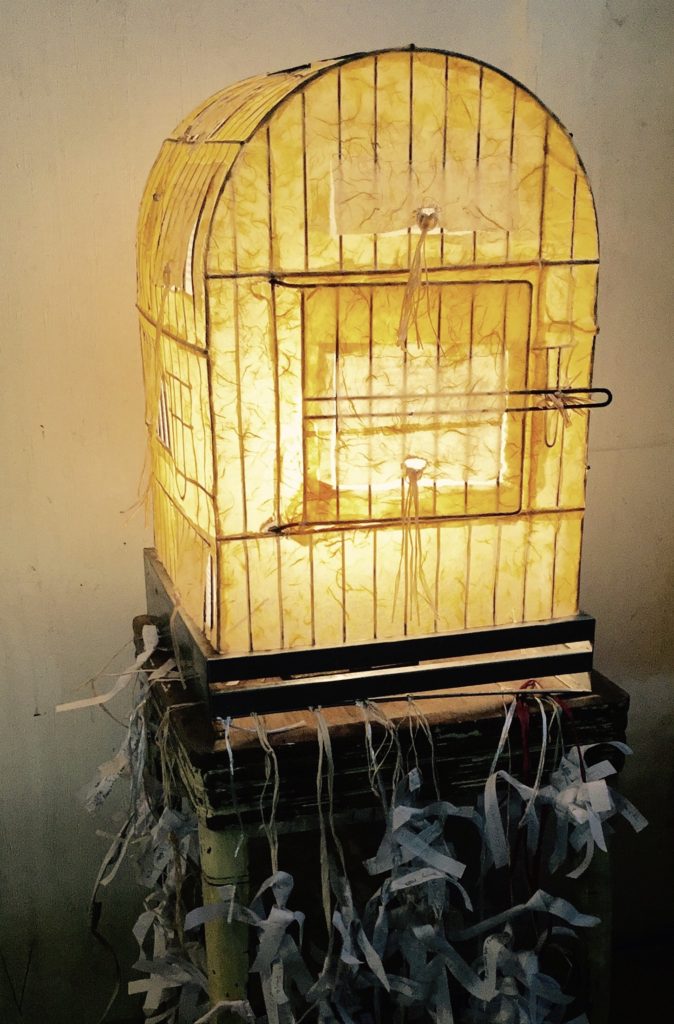 Judy Shintani
Judy Shintani
Remembrance Shrine, 2006-present
Mixed media with birdcage, paper and ink
60” x 72” x 36”
Fashioned from a birdcage wrapped in rice paper, Shintani’s artwork is reminiscent of an Obutsudan, a small Buddhist home shrine. The shrine glows like a paper lantern and signifies the dignity and resilience of the imprisoned. The memories of those who were incarcerated from 1942-46 are hidden behind shutters on the shrine. Viewers are invited to lift the shutters to reveal writings about this challenging time and to leave their own written thoughts by tying them onto the shrine.
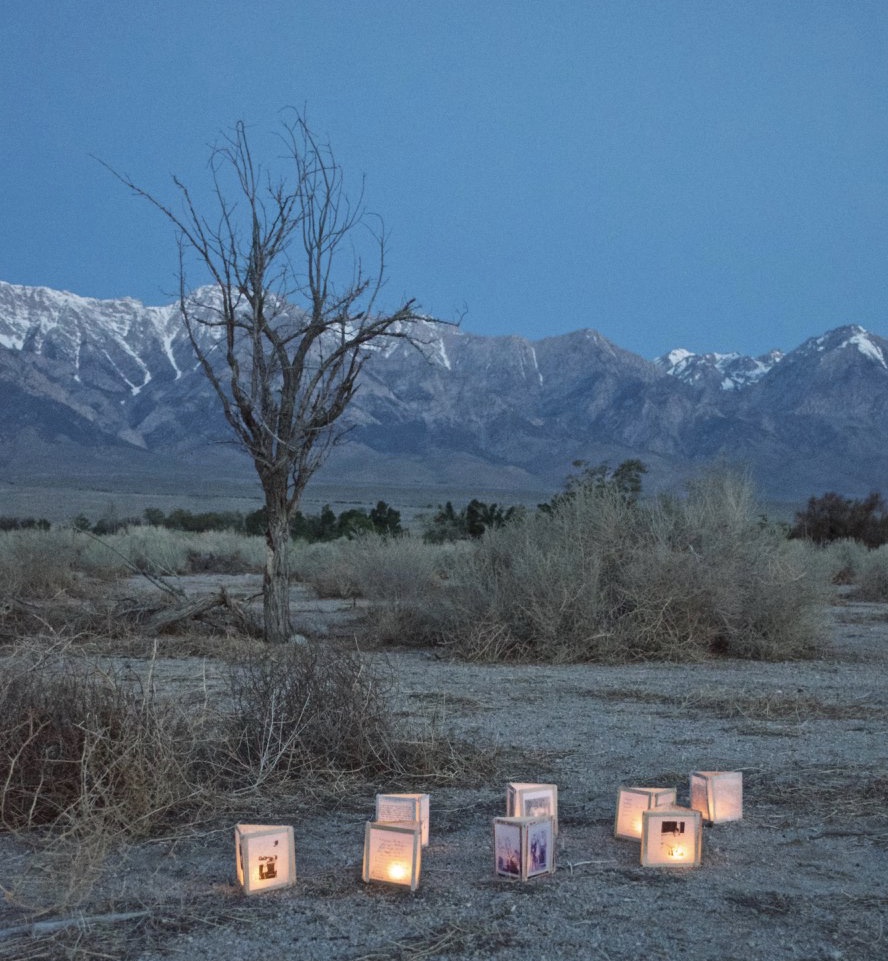 Ellen Bepp, Shari Arai DeBoer, Reiko Fujii, Kathy Fujii-Oka and Judy Shintani
Ellen Bepp, Shari Arai DeBoer, Reiko Fujii, Kathy Fujii-Oka and Judy Shintani
Ancestor Lanterns, 2018
Paper, wood and battery operated candles
3” x 3” x 3”
The artists created these lanterns with the intention to honor their ancestors who were incarcerated. Family photos are incorporated into each lantern. During their journey to Manzanar, the artists brought these lanterns with them and lit them in the early morning darkness.
This contemporary art installation is part of the July 21st event, Shared Footsteps: From Exclusion to Injustice, a procession and sansei arts experience. The multi-site program will begin at Exclusion at the Presidio Officers’ Club, followed by a procession to Then They Came For Me at Building 100. A short documentary, “Sansei Granddaughter’s Journey” that captures the arts collaboration will be screened at 1 pm.

